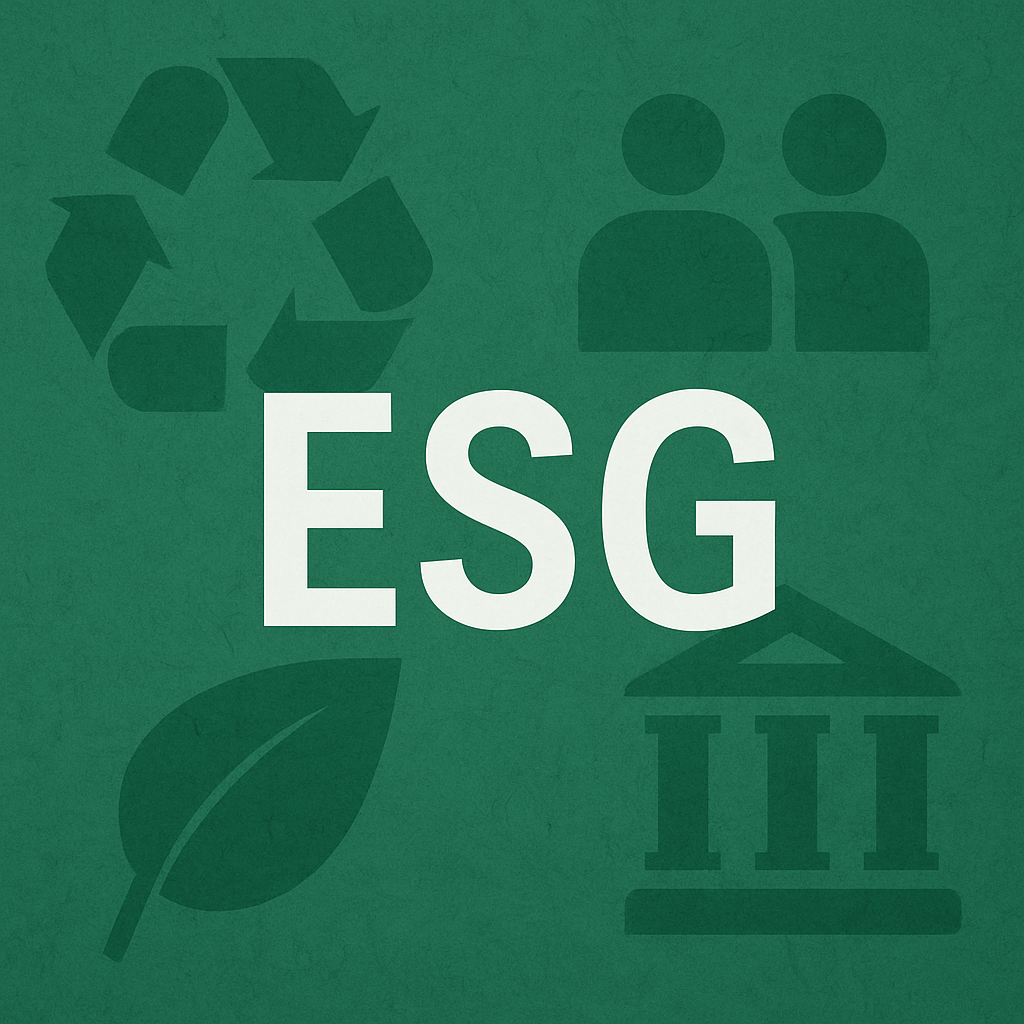
• Introduction: ESG—A Rising Priority for Saudi Investors
Did you know that over $30 trillion in global assets are now managed using ESG (Environmental, Social, and Governance) criteria? In Saudi Arabia, ESG compliance is rapidly becoming a cornerstone of investment decision-making, especially as the Kingdom intensifies its efforts under Vision 2030 to attract sustainable and responsible capital.
With new ESG disclosure guidelines issued by the Capital Market Authority (CMA) and rising stakeholder demand for transparency, Saudi investors are no longer just looking at financial metrics. ESG compliance is now a powerful indicator of long-term profitability and risk resilience—making it a game changer for businesses looking to attract strategic investment.
• What is ESG Compliance?
ESG compliance refers to a company’s adherence to environmental, social, and governance standards. These include:
- Environmental: Carbon emissions, energy usage, water management, and climate impact.
- Social: Labor practices, community engagement, diversity, and customer satisfaction.
- Governance: Board structure, executive compensation, audits, and compliance with laws.
Rather than being a legal obligation alone, ESG compliance represents a strategic approach to sustainable business—where ethical practices and long-term impact matter just as much as profit.
• Why ESG Matters to Saudi Businesses and Investors
In Saudi Arabia, the ESG movement is gaining rapid traction due to several converging factors:
Vision 2030 Alignment
The Saudi government is investing heavily in renewable energy, sustainability, and infrastructure diversification. ESG compliance aligns with national goals, making businesses more attractive to local development funds and foreign direct investment.
Regulatory Push
The CMA’s ESG Reporting Guidelines (2023) require listed companies to disclose ESG performance. Those failing to comply risk losing investor confidence, potential fines, and even reputational damage.
Investor Preferences Are Shifting
Institutional and private investors increasingly favor ESG-integrated portfolios. Globally, ESG investments outperformed traditional benchmarks in many sectors during times of volatility, a trend now influencing Gulf investors.
• Challenges Facing Saudi Companies
While ESG offers immense benefits, implementing it poses several hurdles:
- Lack of Standardization
Many companies struggle to identify which frameworks (like GRI, SASB, or TCFD) to follow, causing inconsistencies in reporting.
- Data Collection Complexity
Reliable ESG data can be hard to track, especially for SMEs that lack robust internal systems.
- Cost Concerns
Initial compliance can involve costs for audits, consultants, and reporting tools—seen as a burden by smaller enterprises.
- Awareness & Expertise Gaps
Many boards and executives lack ESG literacy, making it difficult to design and lead effective strategies.
• Best Practices for ESG Success
Saudi businesses can overcome these challenges by adopting structured and scalable ESG strategies.
- Choose the Right Framework
Start with a globally recognized ESG framework that aligns with your industry and stakeholder expectations. For example:
- GRI for general sustainability
- TCFD for climate risk
- SASB for industry-specific metrics
- Establish Governance Structures
Assign ESG responsibilities to a dedicated committee or integrate them into risk and audit committees.
- Use Technology to Your Advantage
Implement GRC software like CG BOD to automate data collection, track KPIs, and generate real-time compliance dashboards.
- Train Your Teams
Invest in ESG literacy programs for leadership and employees to embed sustainability into the culture.
- Engage Stakeholders Transparently
Regularly publish ESG reports and hold investor briefings to showcase performance and progress.
• Case Studies from the Saudi Market
ACWA Power’s ESG Journey
One of Saudi Arabia’s leading energy companies, ACWA Power, has become a benchmark for ESG-driven growth. The company’s focus on clean energy, transparent governance, and human capital development has earned it global investor trust and billions in funding from ESG-aligned sources.
NEOM: ESG at the Core
The NEOM project isn’t just a futuristic smart city—it’s a case study in embedding ESG from the ground up, with sustainability targets at the heart of infrastructure, energy, and governance planning.
• Conclusion: A Roadmap for ESG-Driven Growth
ESG compliance is no longer a “nice to have”—it’s a business imperative for Saudi companies in 2025. Investors are demanding it, regulators are enforcing it, and the market rewards those who lead with transparency and responsibility.
To thrive in this evolving landscape, Saudi businesses must:
- Adopt a credible ESG framework
- Embrace technology for reporting and compliance
- Build internal expertise and awareness
- Actively engage with investors and stakeholders.
